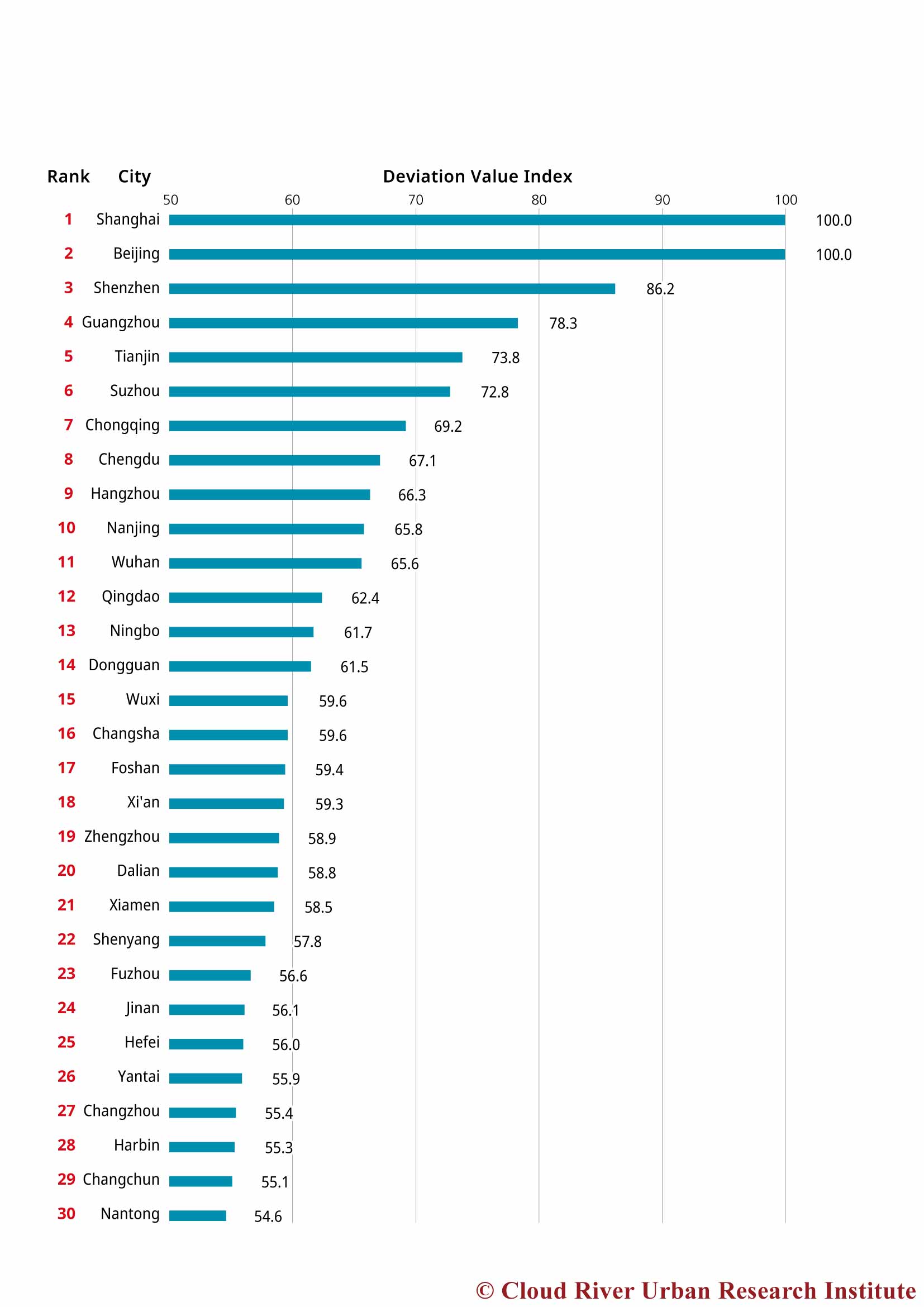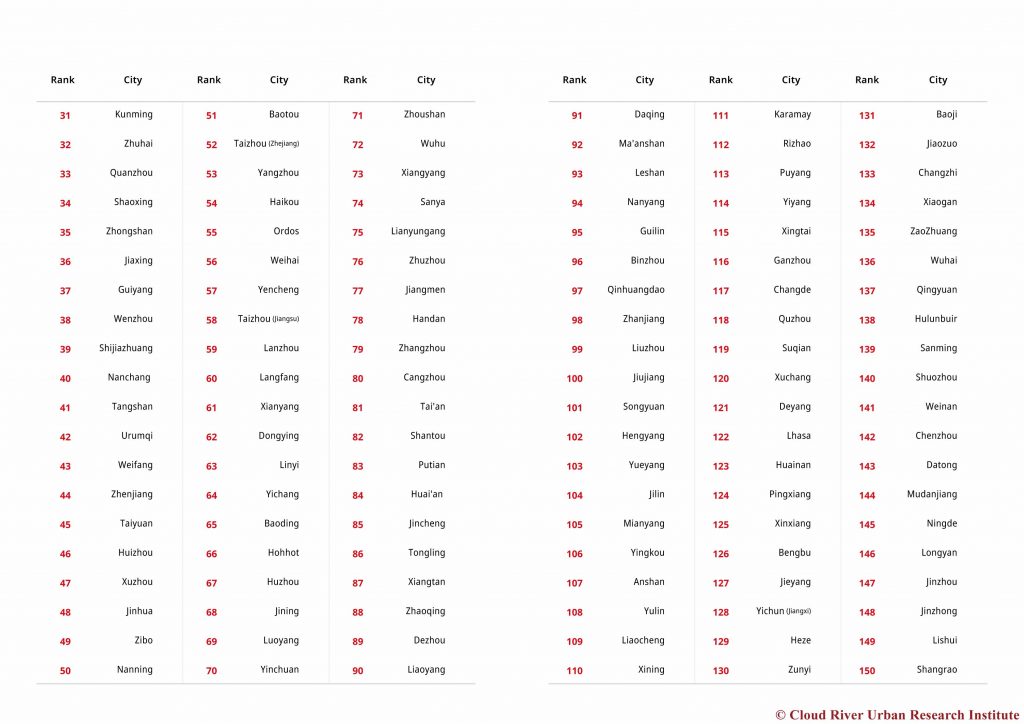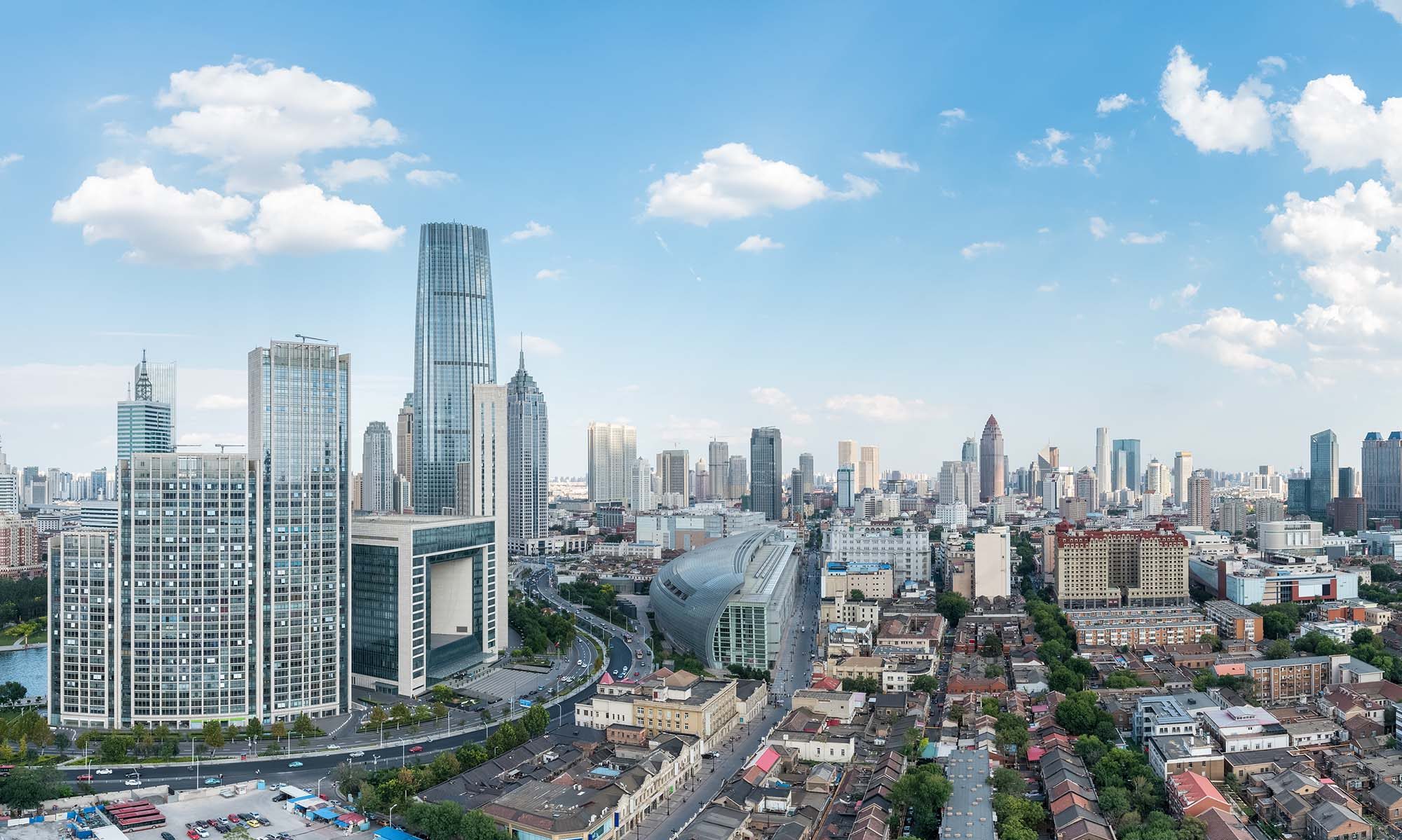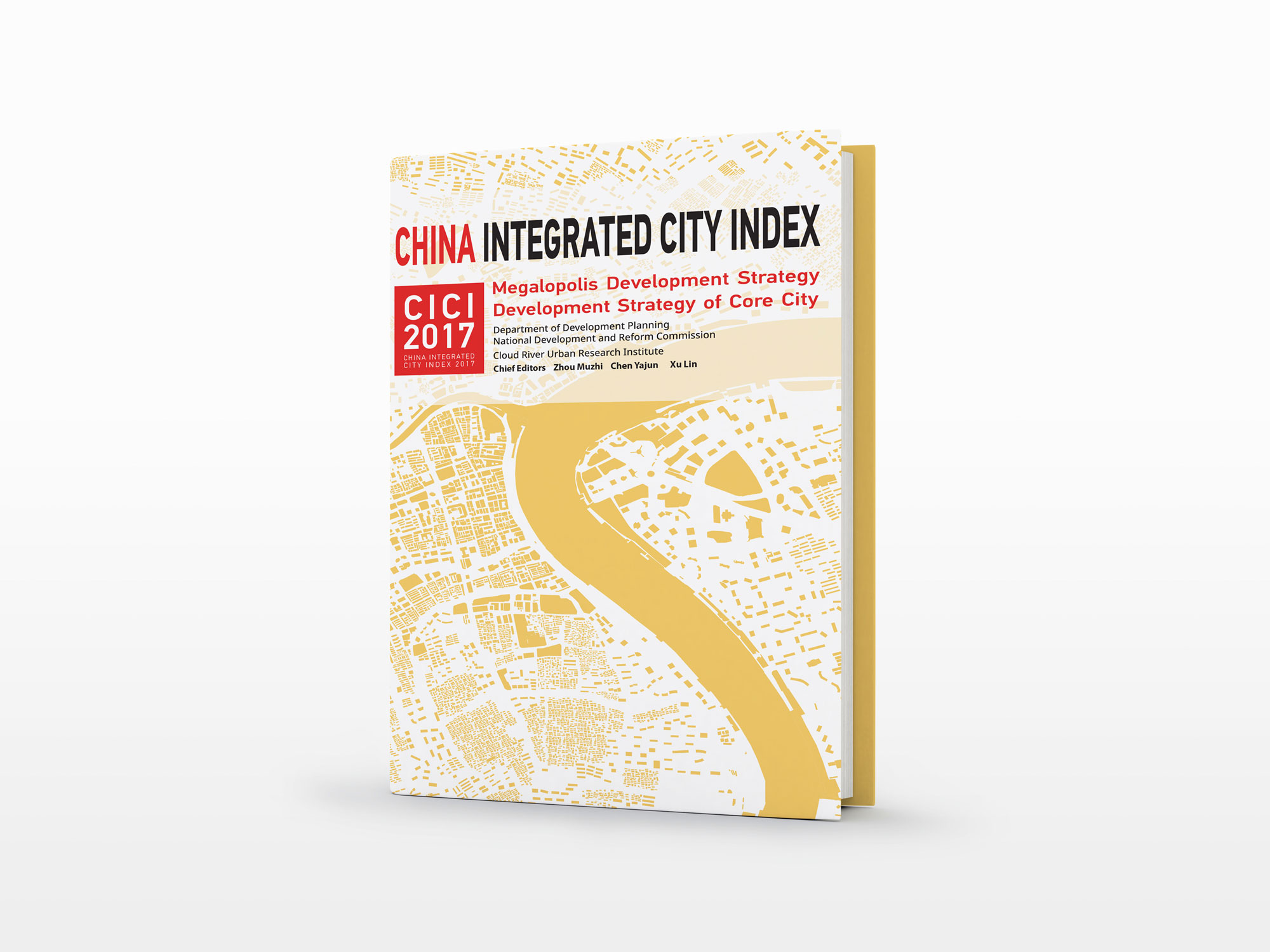
1. Comprehensive Ranking
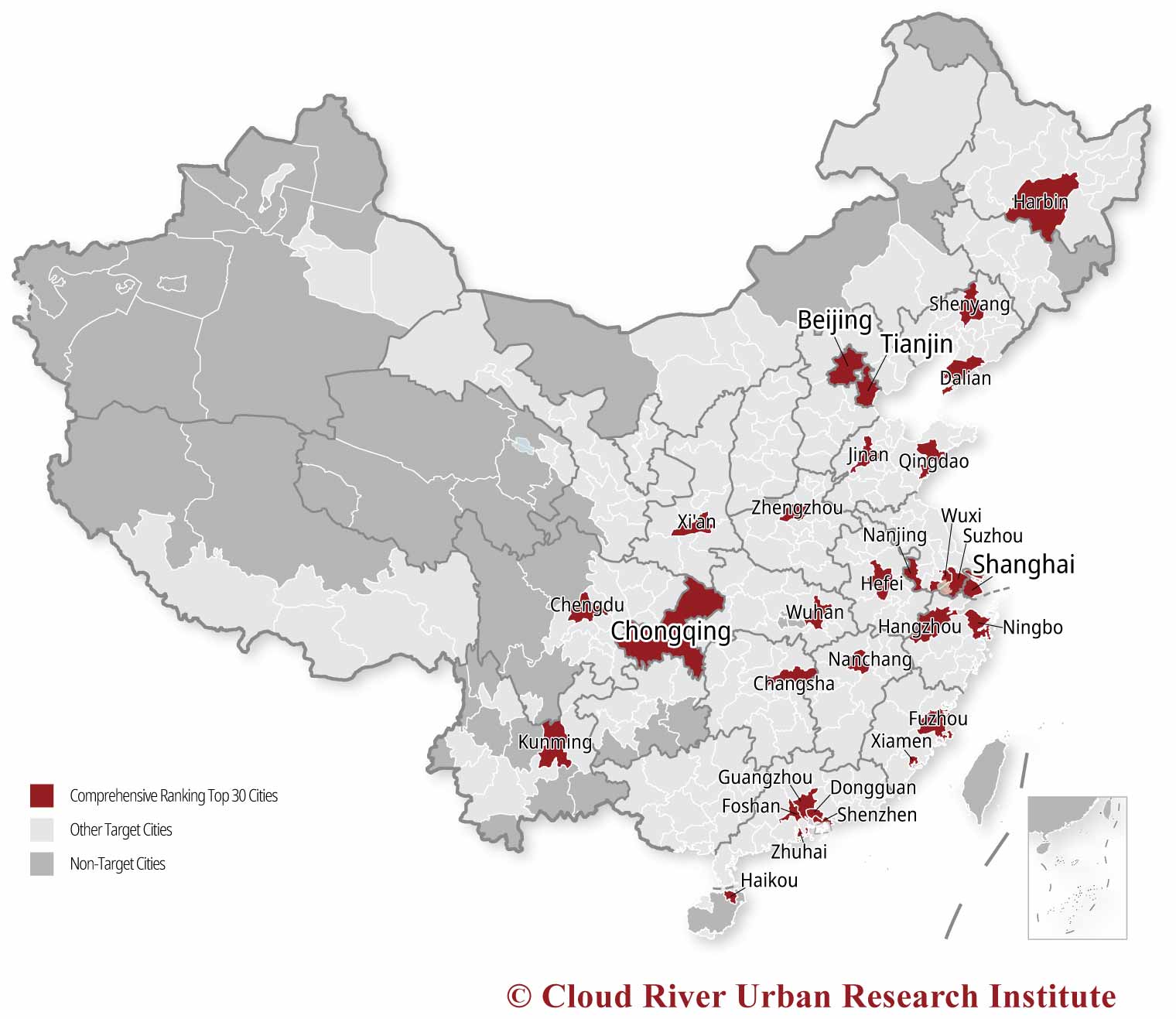
The Comprehensive Ranking: Beijing, Shanghai, and Shenzhen Respectively Winning the 1st, 2nd, and 3rd Places Again
In addition, Beijing, Shanghai, and Shenzhen each won the 1st place in the social, economic, and environmental rankings, again.
Specifically, within the social dimension, Beijing ranked first in the country with her prevailing advantages in all the three sub-dimension indicators of quality of life, inheritance and exchange, as well as status and governance. Shanghai won the national 1st place in two sub-dimension indicators (i.e., quality of economic development and urban influence) within the economic dimension and in one sub-dimension indicator (i.e., spatial structure) within the environmental dimension. Shenzhen was ranked relatively even across the environmental, economic and social dimensions, taking the 1st, 3rd, and 7th plaes respectively. From the rankings of different indicators, however, it is also observed Beijing and Shanghai still have many problems within the environmental dimension to be solved in a timely manner.
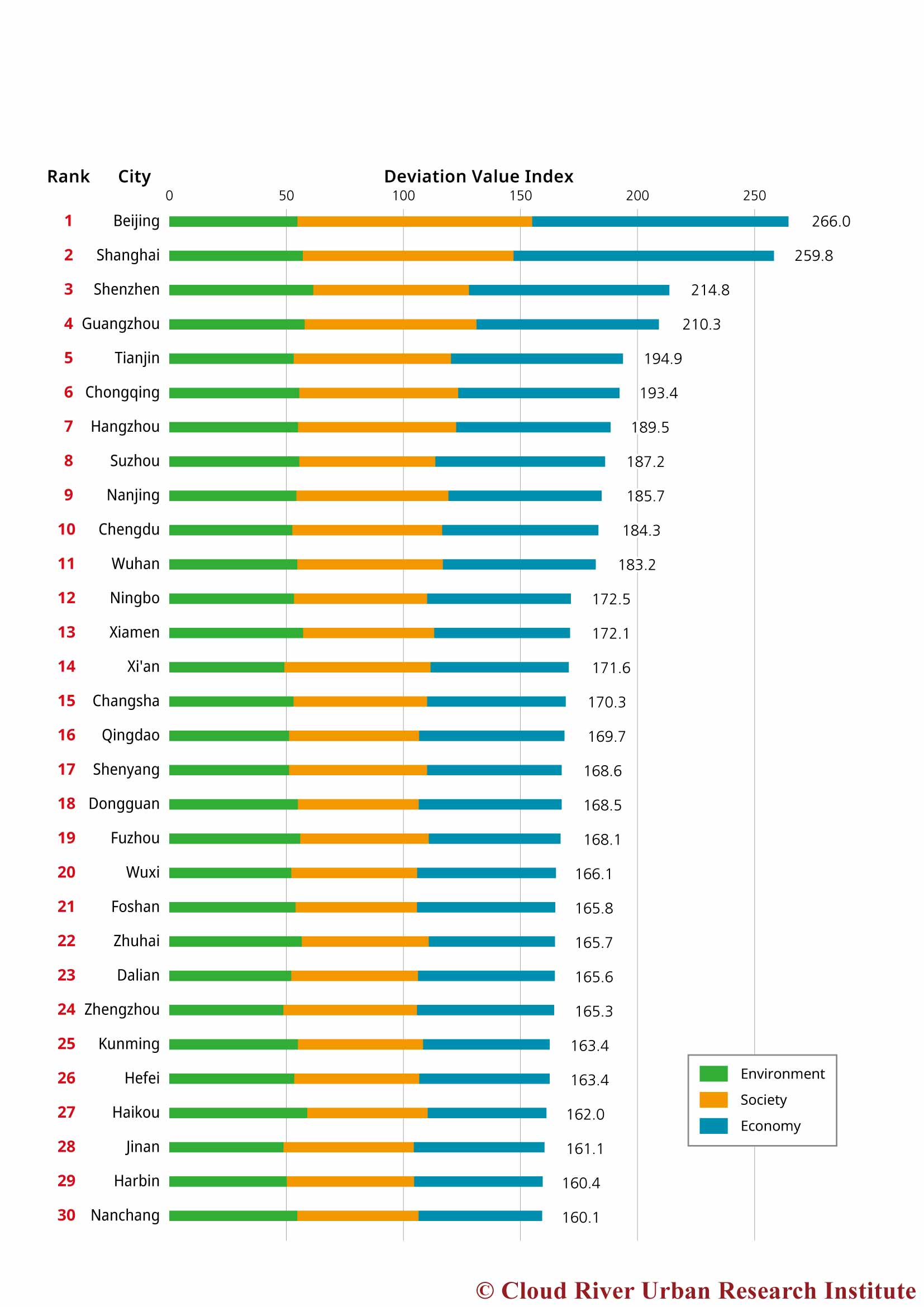
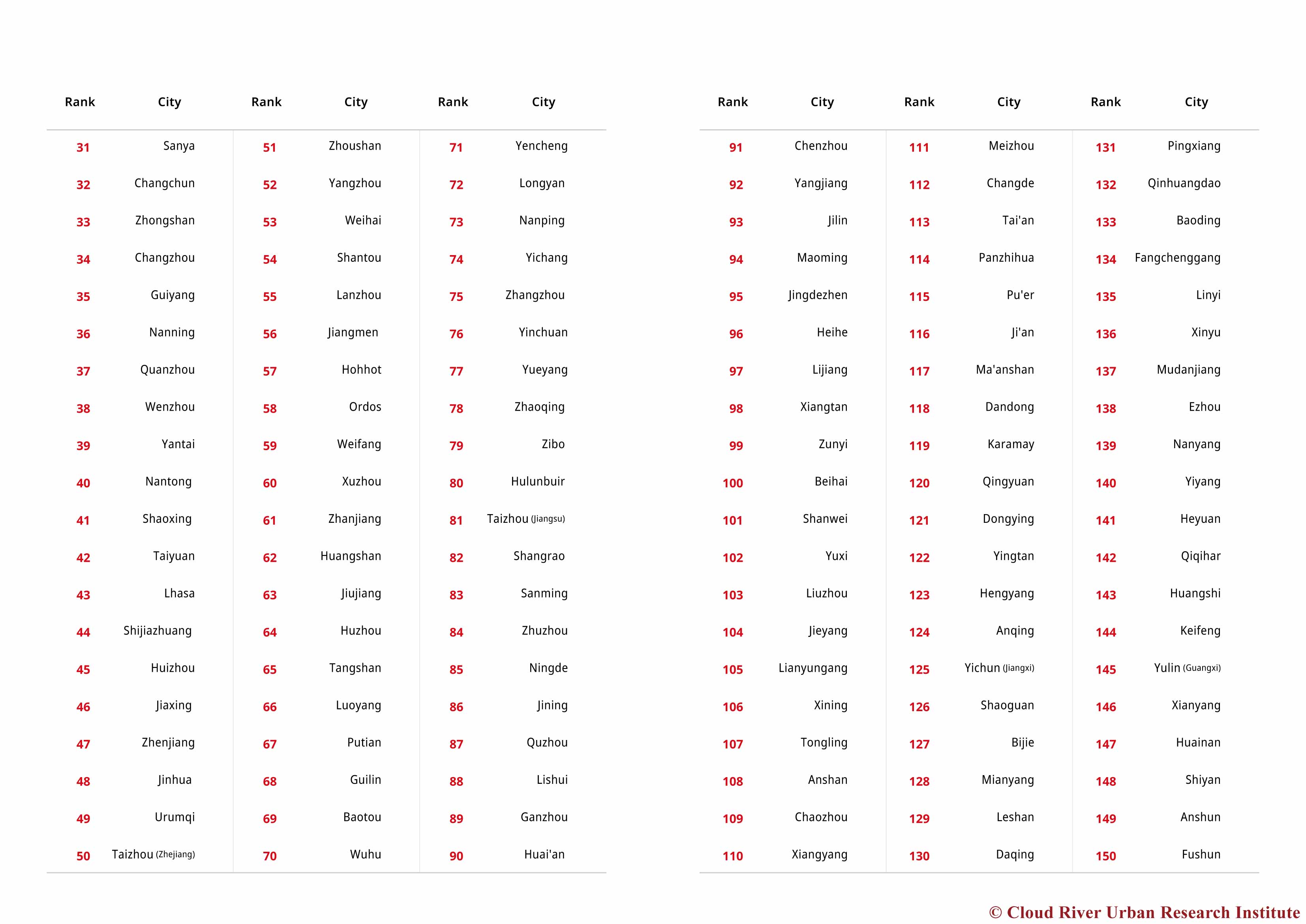
2. Environmental Ranking
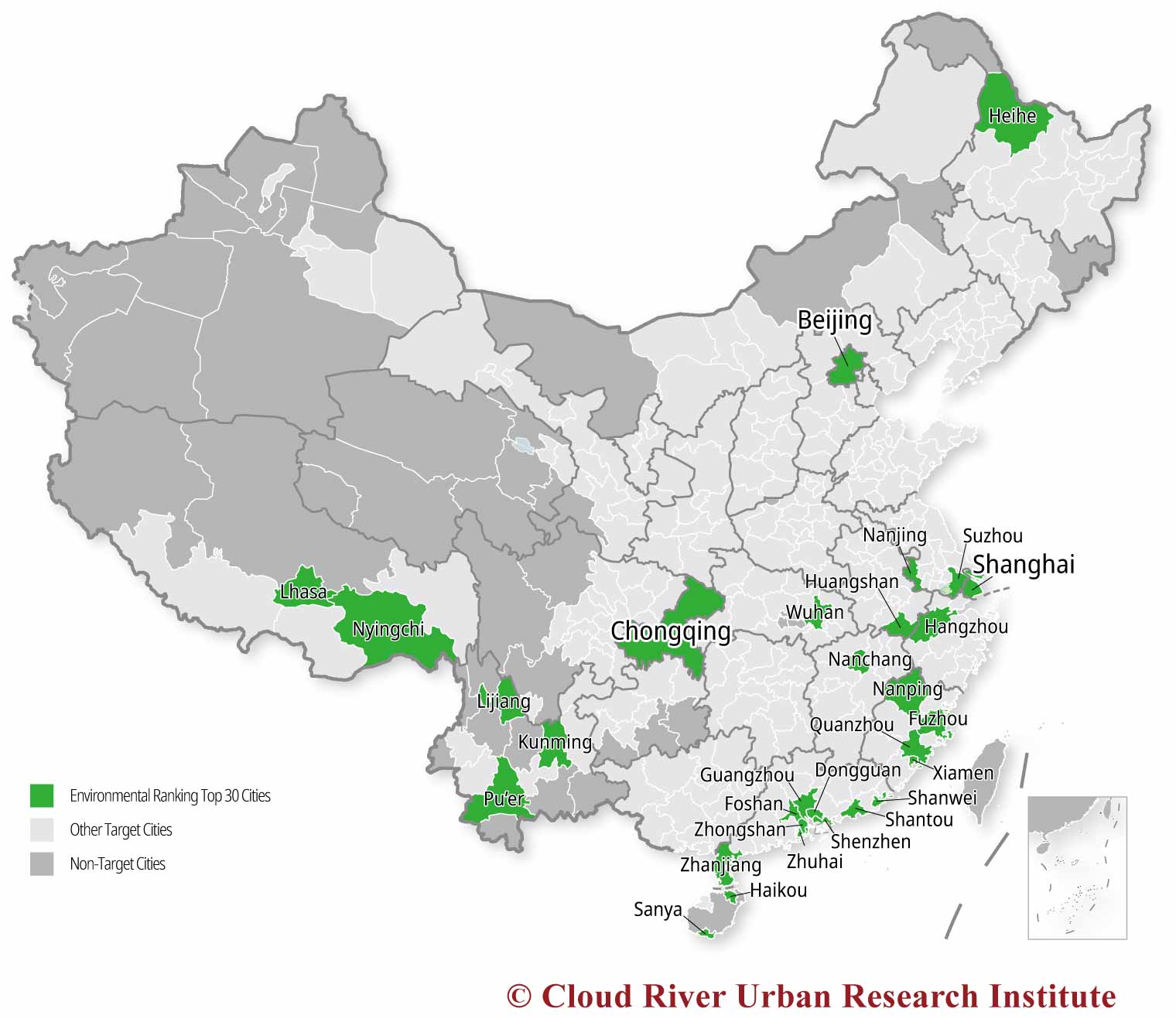
Shenzhen Continued to Be the Champion in the Environmental Ranking while Sanya and Haikou Ranked 2nd and 3rd Respectively
Shenzhen’s success in the environmental ranking mainly relied on her high stardards of urbanization, convenient urban transportation, high population density and compact spatial structure. As an emerging coastal megacity, Shenzhen has achieved a relatively balanced development in environmental, social, and economic dimensions.
From No. 2 to No. 10 in the environmental ranking respectively sat Sanya, Haikou, Guangzhou, Shanghai, Xiamen, Zhuhai, Fuzhou, Chongqing and Suzhou.
Among the top 10 cities in the environmental dimension, Chongqing and Suzhou are located along the Yangtze River, and the other eight cities sit on the coastline. Coastal and riverside cities have not only achieved a rapid economic development in the era of big exchanges and big transactions but have enjoyed natural advantages in ecological resources. These cities, pioneering in China’s opening to the outside world, have also exceled in spatial structure and environmental quality.
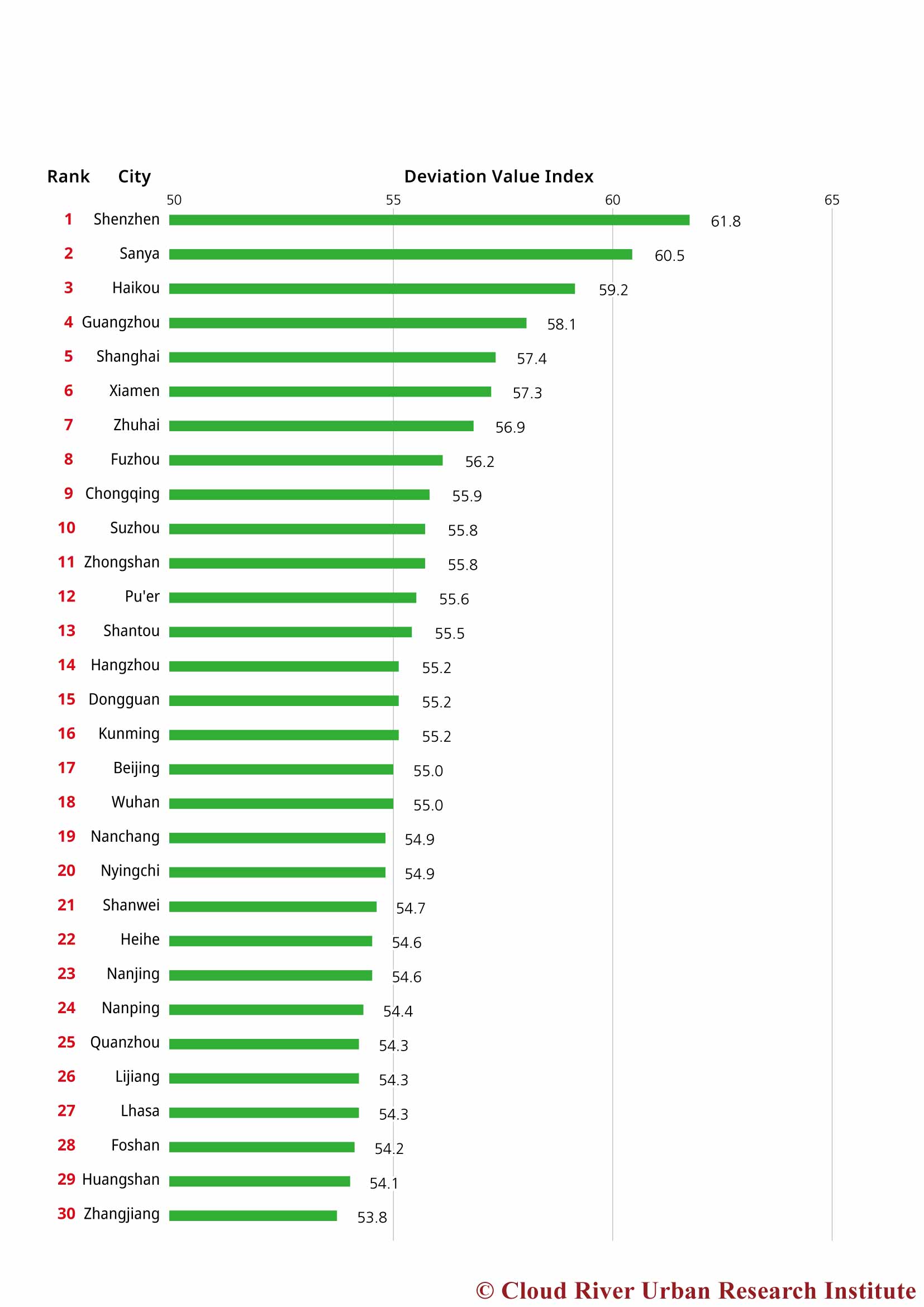
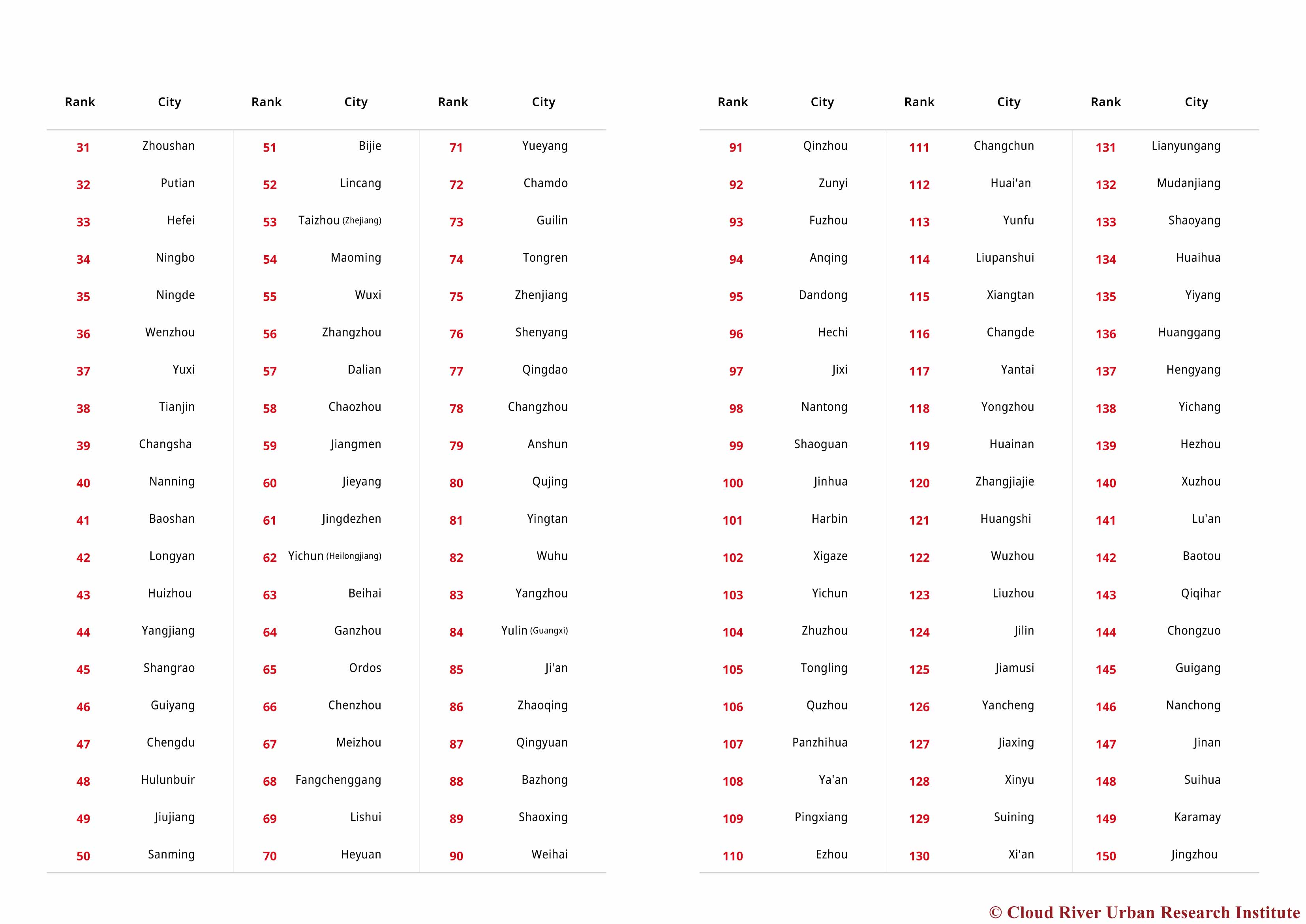
3. Social Ranking
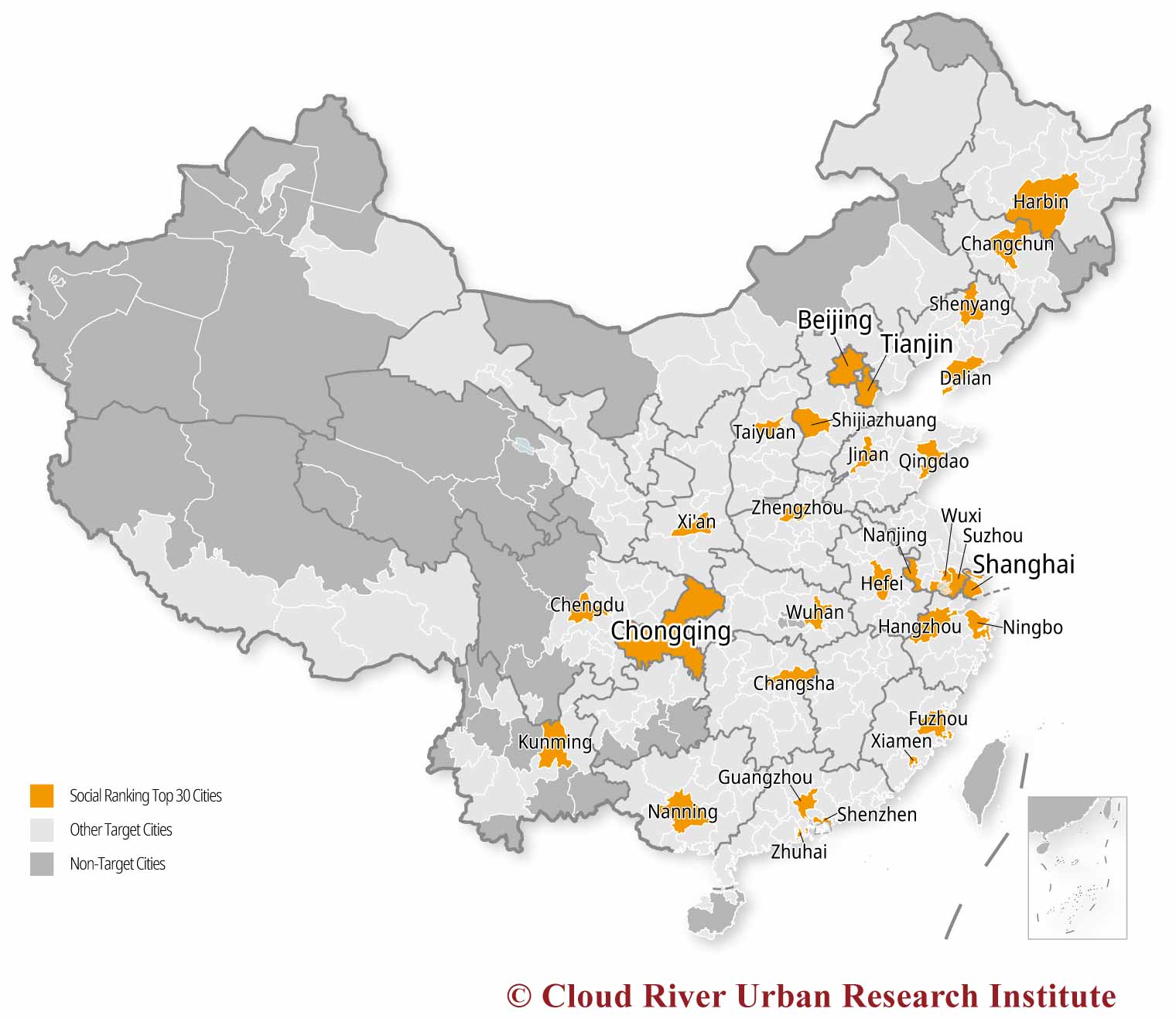
Beijing Continued to Be the Champion in the Social Ranking, with Shanghai and Guangzhou Taking the 2nd and 3rd Places
As the capital of China, Beijing has unparalleled advantages in the social dimension. Shanghai ranked 2nd for each of the three sub-dimension indicators, namely, quality of life, inheritance and exchange, as well as status and governance. In addition to the 3rd place in quality of life, Guangzhou ranked 4th for other two sub-dimension indicators.
Chongqing, Hangzhou, Tianjin, Shenzhen, Nanjing, Chengdu, and Xi’an ranked from 4th to 10th respectively within the social dimension.
The top 10 cities within the social dimension are predominately municipalities directly under the Central Government, capital cities of provinces, and cities specifically designated in the state plan. Except for Shenzhen, which is a new city emerging as a special economic zone under the reform and opening-up policy, all other nine cities have a long history, wherein Beijing, Hangzhou, Nanjing and Xi’an were capitals of ancient empires.
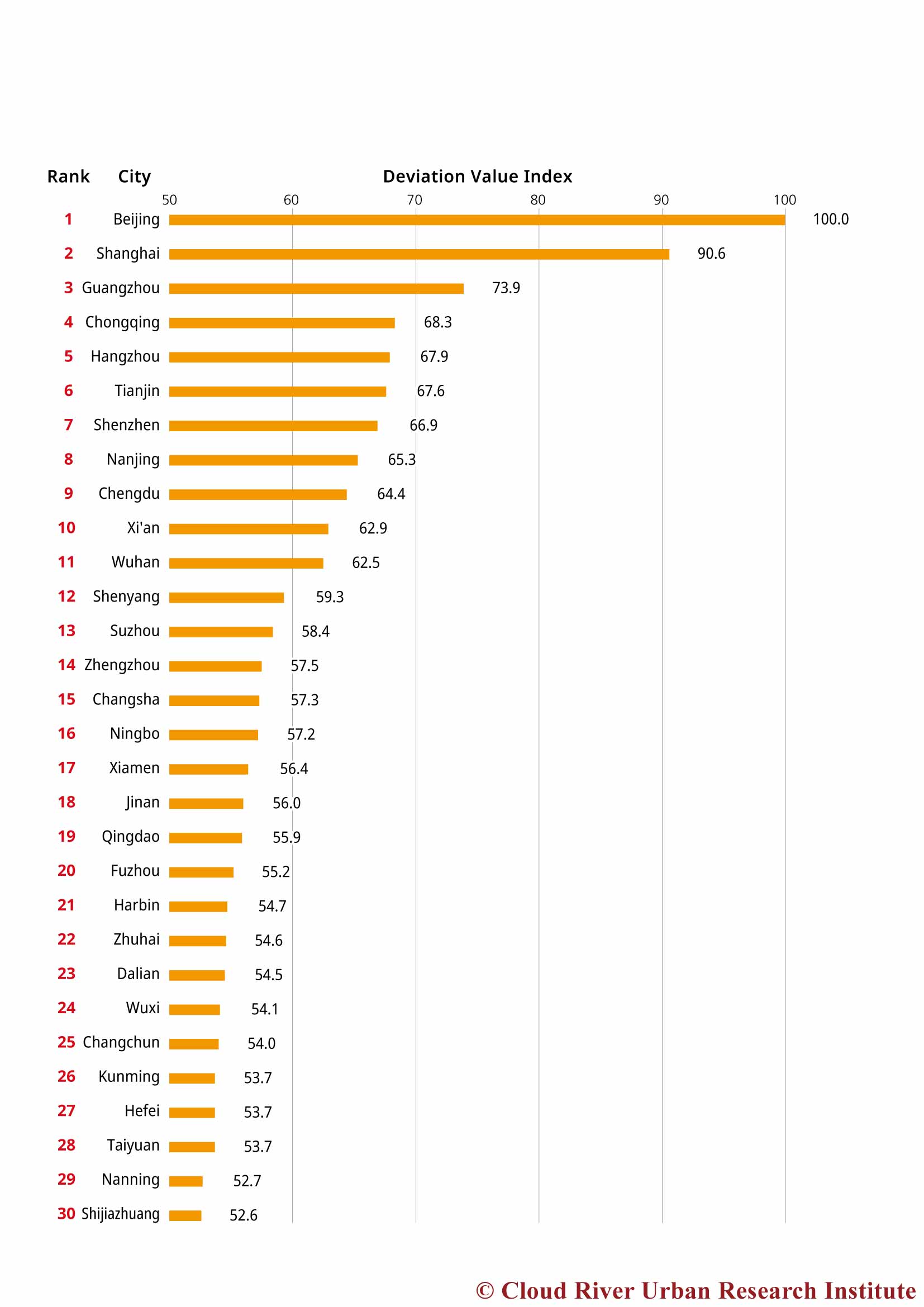
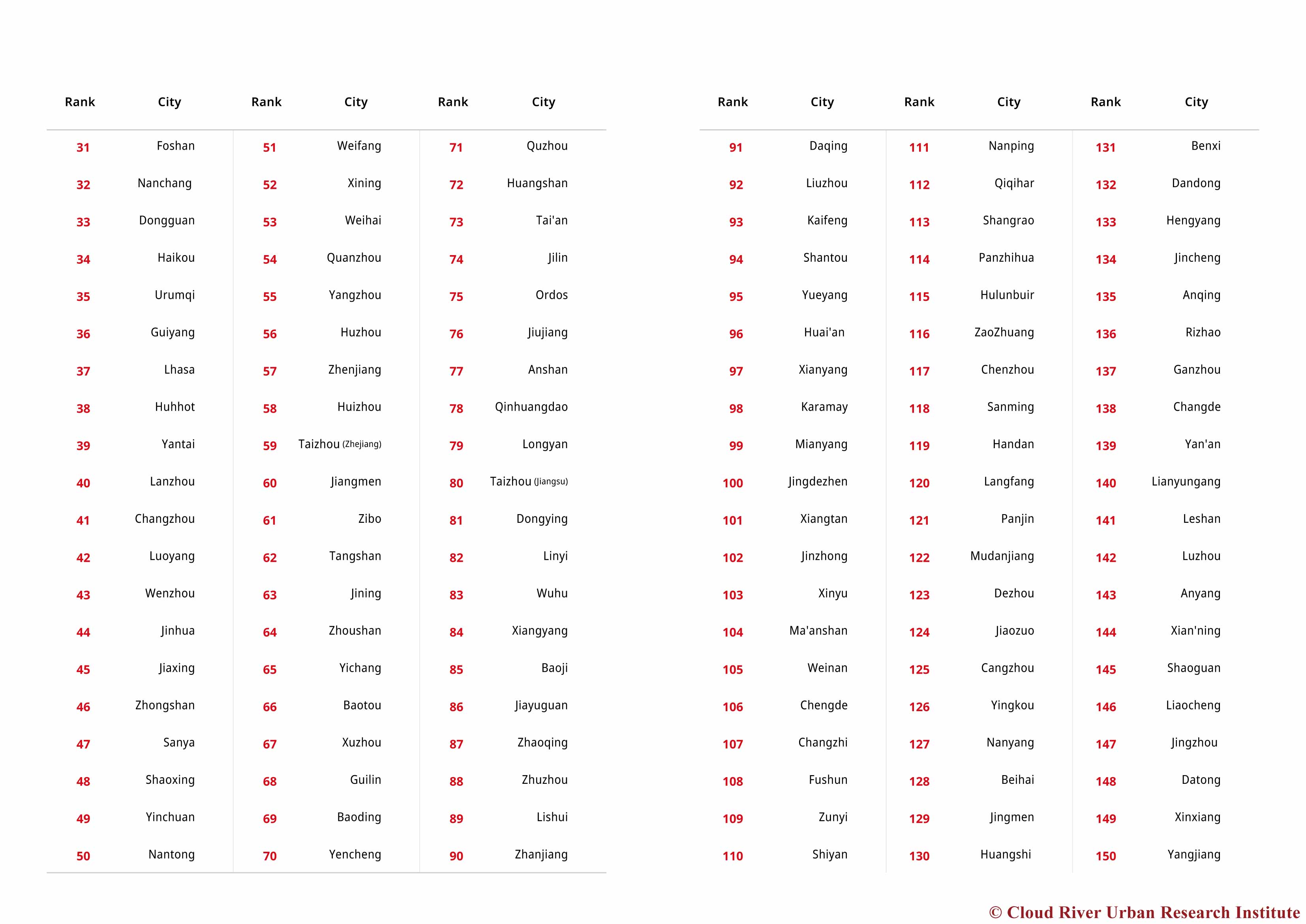
4. Economic Ranking
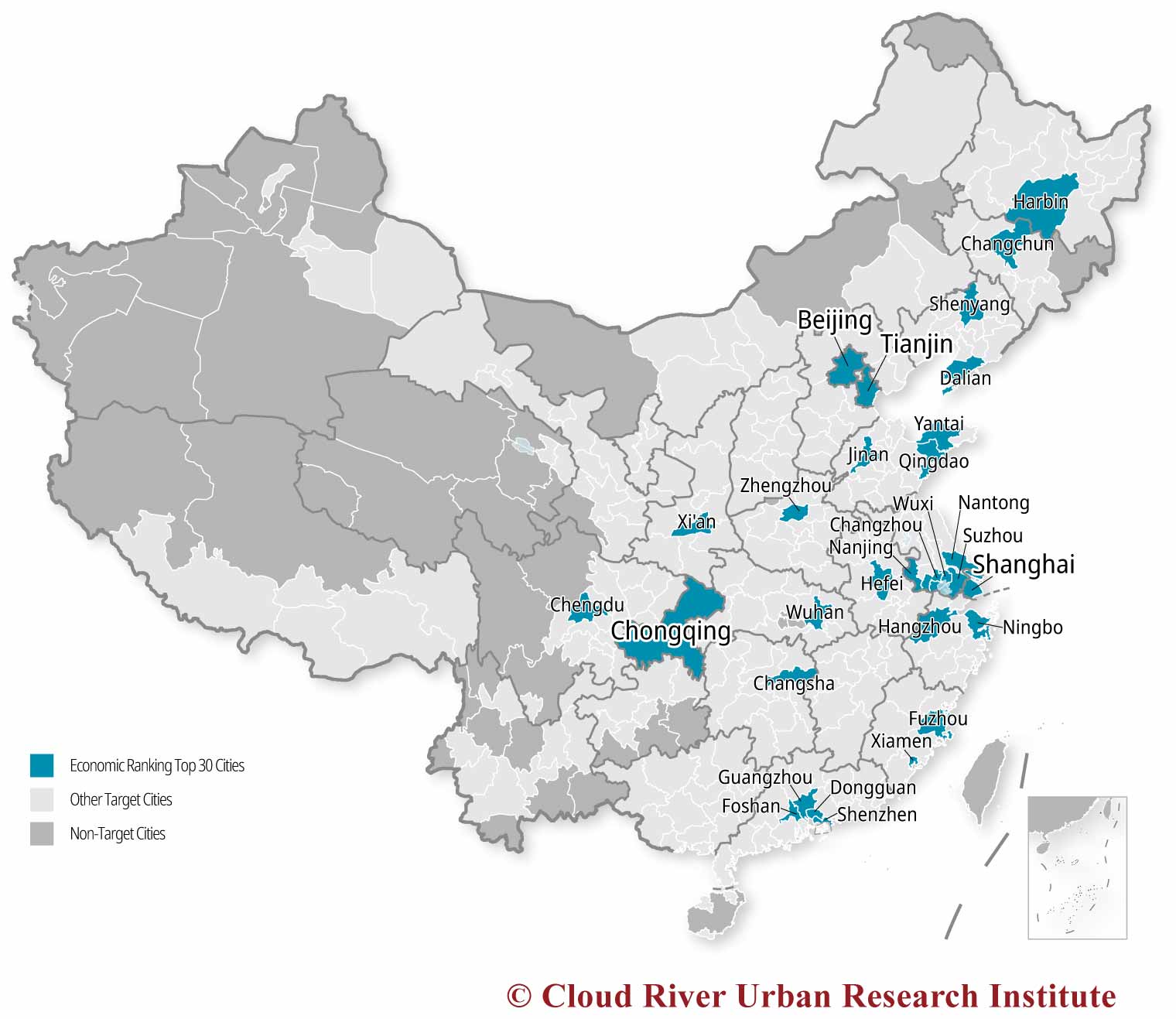
Shanghai, Beijing, and Shenzhen Continued to Hold Their Places as Top 3 in the Economic Ranking
As the leader in the development of the Yangtze River Delta Megalopolis and the Yangtze River Economic Zone, Shanghai continued to be the champion in the economic ranking. Although Beijing slightly lagged behind Shanghai in terms of quality of economic development and urban influence, she ranked No. 1 in dynamic development nationwide. Shenzhen, which ranked 3rd within the economic dimension, also ranked 3rd for all the three sub-dimension indicators, namely, quality of economic development, dynamic development, and urban influence.
Guangzhou, Tianjin, Suzhou, Chongqing, Chengdu, Hangzhou and Nanjing ranked from 4th to 10th within the economic dimension, respectively.
